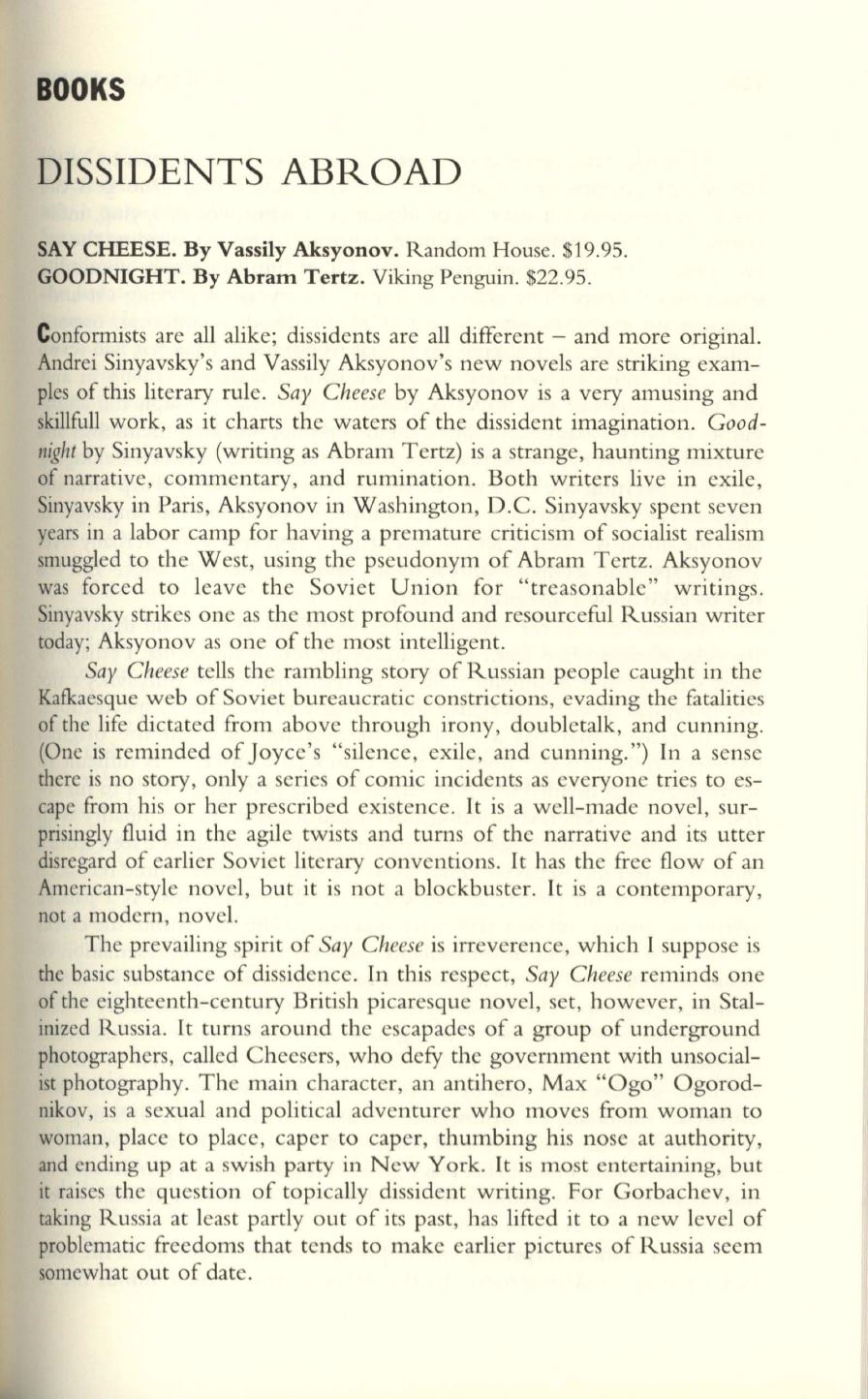
BOOKS
DISSIDENTS ABROAD
SAY CHEESE. By Vassily Aksyonov.
Random House.
$19.95.
GOODNIGHT. By Abram Tertz. Viking Penguin. $22.95.
Conformists are all alike; dissidents are all different - and more original.
Andrei Sinyavsky's and Vassily Aksyonov's new novels are striking exam–
ples of this literary rule.
Say
Cheese
by Aksyonov is a very amusing and
skillfull work, as it charts the waters of the dissident imagination.
Good–
night
by Sinyavsky (writing as Abram Tertz) is a strange, haunting mixture
of narrative, commentary, and rumination. Both writers live in exile,
Sinyavsky in Paris, Aksyonov in Washington, D.C. Sinyavsky spent seven
years in a labor camp for having a premature criticism of socialist realism
smuggled to the West, using the pseudonym of Abram Tertz. Aksyonov
was forced
to
leave the Soviet Union for "treasonable" writings.
Sinyavsky strikes one as the most profound and resourceful Russian writer
today; Aksyonov as one of the most intelligent.
Say
Cheese
tells the rambling story of Russian people caught in the
Kafkaesque web of Soviet bureaucratic constrictions, evading the fatalities
of the life dictated from above through irony, doubletalk, and cunning.
(One is reminded of Joyce's "silence, exile, and cunning. ") In a sense
there is no story, only a series of comic incidents as everyone tries to es–
cape from his or her prescribed existence. It is a well-made novel, sur–
prisingly fluid in the agile twists and turns of the narrative and its utter
disregard of earlier Soviet literary conventions. It has the free flow of an
American-style novel, but it is not a blockbuster. It is a contemporary,
not a modern, novel.
The prevailing spirit of
Say Cheese
is irreverence, which I suppose is
the basic substance of dissidence. In this respect,
Say Cheese
reminds one
of the eighteenth-century British picaresque novel, set, however, in Stal–
inized Russia. It turns around the escapades of a group of underground
photographers, called Cheesers, who defy the government with unsocial–
ist photography. The main character, an antihero, Max "Ogo" Ogorod–
nikov, is a sexual and political adventurer who moves from woman to
woman, place to place, caper to caper, thumbing his nose at authority,
and ending up at a swish party in New York.
It
is most entertaining, but
it raises the question of topically dissident writing. For Gorbachev, in
taking Russia at least partly out of its past, has lifted it to a new level of
problematic freedoms that tends to make earlier pictures of Russia seem
somewhat out of date.


